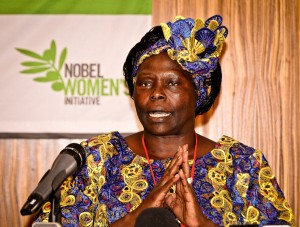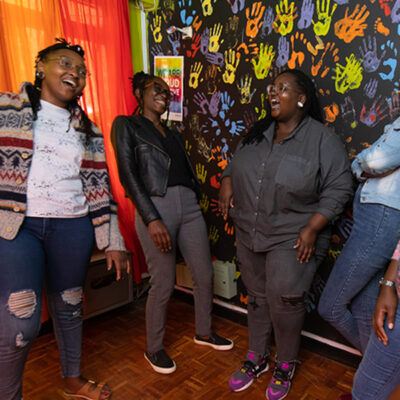
I was very saddened to read about the death of Wangari Maathai yesterday, just a few days after I returned from spending several weeks with AJWS’s partners in Kenya and Ethiopia. Maathai was a world renowned environmentalist, the founder of the Green Belt Movement, a political and human rights activist, and the first woman from Africa to win the Nobel Peace Prize. She was also a huge inspiration to many of AJWS’s partners in Africa working not only on environmental and natural resource rights issues, but also with youth, women, girls, and LGBT people.
All her life, Wangari Maathai stood for up for what she believed in, be it conserving the environment, advocating for democratic reforms, or releasing political prisoners.
Because of her public activism (Maathai staged many hunger strikes), she was arrested and jailed on several occasions and faced numerous problems in her personal life.
She understood that peace, democracy, human rights, and environmentalism are all interrelated and that people cannot work on improving conditions in one area without looking at them all. At AJWS, we draw inspiration from her life and her holistic approach to social justice, and seek to embody these values in our grantmaking.
On my trip to Kenya, I spent a great deal of time with the Kenya Natural Resource Alliance (KENRA), an AJWS partner working to empower local communities to have more control over the use of natural resources, including their lands and the minerals within them. KENRA’s leaders told me that they’ve been tremendously inspired by Maathai and that they reflect every day on her words of wisdom:
“It is evident that many wars are fought over resources which are now becoming increasingly scarce. If we conserved our resources better, fighting over them would not then occur… so, protecting the global environment is directly related to securing peace… those of us who understand the complex concept of the environment have the burden to act. We must not tire, we must not give up, we must persist.”
Gay Kenya, an LGBT organization that is a member of AJWS’s partner, the Gay and Lesbian Coalition of Kenya, told me:
“Earlier on at Gay Kenya, when we were looking for supportive voices we had reached out to Maathai for support. She was extremely supportive and advised us not to expect it to be easy. In fact our battle for equality and non-discrimination would be just as hard if not even harder than that for the environment.”
Although millions of people in Kenya and around the world are mourning Wangari Maathai’s death, one of the ways we can honor her life is by recommitting ourselves to achieving the goals that Maathai pursued. I think it’s what she would want us to do.
So today, let’s all do something to honor Maathai’s legacy. Advocate for global food justice; read one of Maathai’s amazing books, or just take some time to reflect upon the extraordinary and courageous work that Maathai accomplished and the work that still needs to be done so that future generations can live on this planet sustainably.

